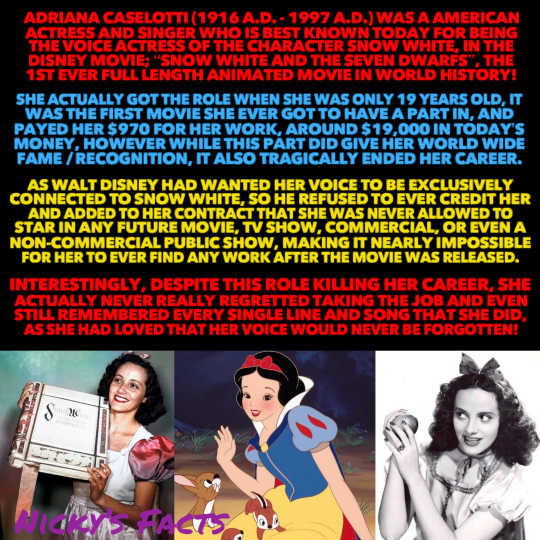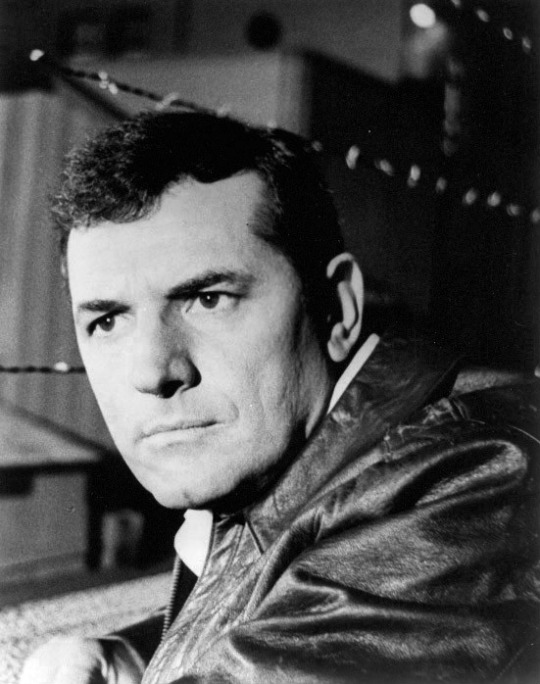#hollywood history
Explore tagged Tumblr posts
Text


Lois Weber (June 13, 1879 – November 13, 1939), groundbreaker, pioneer. One of the leading director-screenwriters in early Hollywood. 🎥
34 notes
·
View notes
Text

Eartha Kitt photographed by Harry Benson 1965
#eartha kitt#harry benson#1960s#1965#icon#classic hollywood#old hollywood#hollywood history#classicfilmloves
132 notes
·
View notes
Text

We live from day to day and get as much joy out of experiencing as we can. - Shelly Duvall.
Shelley Duvall and Patrick Reynolds in a photo booth. R.I.P. Shelley🕯️
#shelley duvall#rip#patrick reynolds#hollywood history#70s cinema#mine#70s fashion#70s style#70s#photo booth#hollywood stars#hollywood#film stars#hollywood news#quotes#hollywood quotes#famous quotes
45 notes
·
View notes
Text

Charlie Chaplin during his first radio debut promoting the film "A Woman Of Paris" (October 3, 1923 on WOR in Newark, NJ).
9 notes
·
View notes
Text

She got to be the voice of a icon, but sadly paid heavily for it👑
🎶🎞️🎶
#history#adriana caselotti#snow white#actress#disney#animation history#princess#disneyland#disney paris#hollywood history#historical figures#disney princess#movies#walt disney#disney 100#american culture#womens history#disney girl#soft girl#princess core#coquette#american history#historical women#animated movies#1930s#hollywood
94 notes
·
View notes
Text


Silver Screen magazine, November 1938

Basil Rathnone, David Niven, and Errol Flynn in Dawn Patrol

Basil Rathbone in the uniform of his Liverpool Scottish regiment
#basil rathbone#wwi#world war one#dawn patrol#david niven#errol flynn#hollywood#old hollywood#classic hollywood#vintage hollywood#hollywood history#history#those socks though#silver screen#magazine#silver screen magazine#movie magazine#1930s#1938#1910s#1914-1918#sherlock holmes
19 notes
·
View notes
Text
Really need some Jewish joy at the moment so I'm gonna infodump about one of my favorite Jewish Hollywood icons, Steven Hill.

(photo credit: Wikipedia)
Look at him. Gaze upon this sexy, sexy Yiddische mensch while I regale you with who he is and why I love him.
Steven Hill, né Shlomo Krakovski, was a contemporary of an indie actor you might not have heard of, kinda backwater guy, I think his name was... Marlon Brando? Anyway, Martin Landau (another Yiddische mensch in Hollywood) has gone on record as saying that if anyone would have guessed whether Hill or Brando would have been the big name of the silver screen at the time, he would have put his money on Hill - a paraphrase, but just going to show you what level we're working with here.
Hill was known throughout Hollywood as one of the most religious people on set. He was strict about leaving Friday at 4 PM so that he could get ready for Shabbat, which led to his firing from a small show called Mission: Impossible at the end of the first season - yeah, if you're a fan of the movie series with Tom Cruise, thank a Jew!
A funny story from that time: Herb Solow, one of the execs at Desilu - the production company started by Desi Arnaz and Lucille Ball - recounted once that William Shatner came to his office because Hill got all the Jews on Star Trek and M:I together for a minyan but were still short a man.
Anyway I love this man so much and thank you for indulging me on this, Happy Hannukah tumblr
#jumblr#jewish#jewblr#jewish joy#judaism#mission impossible#star trek#steven hill#am yisrael chai#jewish history#hollywood history
45 notes
·
View notes
Text
instagram
“Jews run Hollywood.”
No, as Ms. Streisand makes clear, Jews began aspects of modern Hollywood out of the tradition of the Yiddish theater, which also made significant contributions to Broadway:
But we didn’t just tell our own stories, we made it so others could tell their stories:
From the above article:
“He listened,” says Gloria Calderón Kellett, co-showrunner of the 2017-2020 revival of Lear’s One Day at a Time. “He very much understood his privilege, and he leveraged it consistently for other people. For him, it was, ‘How can I best serve you guys in the telling of this story authentically?'”
Listening and helping others are Jewish values.
Maybe Jews were mistaken to ascribe these values to people who don’t believe the way we do. Yet, it still hurts all the more when other people don’t listen and try to help us.
Note: This post is about antisemitism in the diaspora, particularly in the US, and also to contextualize why diaspora Jews in the US have contributed to certain industries. There are many other important issues right now, but they aren’t what this post is about. Also, the “privilege” mentioned in the quote is easily revoked, as we all know too well.
#Instagram#jumblr#diaspora jewery#antisemitism#hollywood history#broadway history#barbra streisand#norman lear
26 notes
·
View notes
Text






Saw a 50th anniversary screening of Young Frankenstein at The Ford on Halloween. The Ford in LA is an outdoor amphitheater in the Hollywood Hills, built in the 1930s and looks like a gothic castle, so it was great ambiance. Guests had on some excellent movie costumes too.
Street Food Cinema hosted and gave a nice tribute to Teri Garr. RIP. 💔
Everyone in this movie is dead 😭
#young frankenstein#mel brooks#teri garr#gene wilder#frankenstein#it’s pronounced fronkensteen#put. the candle. back#roll roll roll in ze hay#happy halloween#rip teri garr#halloween#october 31#ford theater#los angeles#hollywood history
7 notes
·
View notes
Text
This Date In Manka Bros. History - April 22, 1943
To show his support for the troops in World War 2, studio boss Harry Manka starts wearing an Army General uniform around the studio lot.

#parody#satire#funny#hollywood#movies#bulgaria#hollywood history#burbank#comedy#hollywood studios#world war 2#world war two#ww2#wwii#world war ii#manka bros
4 notes
·
View notes
Text
The first systematic Hollywood blacklist was instituted on November 25, 1947, the day after ten writers and directors were cited for contempt of Congress for refusing to testify before the House Un-American Activities Committee (HUAC). The blacklist denied employment to entertainment professionals due to alleged Communist ties or sympathies.

24 notes
·
View notes
Text


Lucy reads the top story after she and Desi vist her home town of Jamestown, NY in February 1956.
#i am forever charmed by her smile in this first photo#lucy and desi#Lucille Ball#Lucy Ball#Desi Arnaz#1950s#1956#classic hollywood#hollywood history#old hollywood#old hollywood stars#retro tv#retro hollywood#classic actress#classic hollywood stars#icon#classicfilmloves#op
60 notes
·
View notes
Text

Shelly Duvall on set of The Shining (1978-79). R.I.P. 🕊️
#the shining#cinema#shelley duvall#hollywood history#hollywood#70s cinema#80s cinema#80s#80s aesthetic#80s style#mine#stanley kubrick#cibema classics#horror movies#horror films
13 notes
·
View notes
Text

French manicures are so simple yet add so much glamour to any look!💜
💅🏻🎞️💅🏾
#history#french manicure#orly#hollywood#nail polish#makeup history#jeff pink#coquette#united states#paris#hollywood history#soft girl#femininity#just girly things#fashion week#barbiecore#bimbocore#dolletecore#girlhood#girly girl#american history#1970s#pretty nails#coquette aesthetic#manicure#pairs fashion week#1970s style#nickys facts
35 notes
·
View notes
Text

Aerial view of Beverly Hills in 1920.
#vintage photography#black and white photography#vintage los angeles#beverly hills#aerial photography#history#hollywood hills#hollywood history
5 notes
·
View notes
Text
In the silent-film era, Hollywood's film industry grew quickly to meet audience demand, and thus it was more pragmatically welcoming to women writers, editors, directors, and producers than it would be at any other time afterward. Directors like Dorothy Arzner, Lois Weber, and Alice Guy-Blaché (the latter widely considered to be the first true "auteur" of cinema), and actor-producers like Mary Pickford (founder of United Artists studios) and Clara Bow created films that weren't the escapist fantasies Hollywood would come to prize, but human stories that included complex relationships and forward-thinking subject matter: Weber's The Hand That Rocks the Cradle, for instance, was about the need for legalized birth control. At one point, women headed up dozens of production companies. But, as film journalist and historian Melissa Silverstein notes, "As it became more about money, the women behind the scenes disappeared." The expensive technology that turned silents into "talkies" beginning in the 1920s necessitated the involvement of Wall Street, which invested in young studios and became the big bosses of directors and producers, imposing a masculinized and increasingly sex-segregated workforce as part of the burgeoning corporate studio system. Women in powerful creative and decision-making roles were suddenly seen as amateurish and unprofessional; for the male-dominated financial forces that took charge of the Hollywood economy, and with larger and larger amounts of cash at stake, they were simply too much of a risk.
Onscreen, representations of women followed a similar trajectory. In what's now known as the pre-Code era of Hollywood films, women were smart, professional, ambitious, forthright, opaque, tricky, even criminal. They blackmailed bosses, had babies out of wedlock, seduced other women—and the thrillers were even steamier. Jean Harlow's Red-Headed Woman was a brazen social climber more than willing to seduce any man to get what she wanted; Barbara Stanwyck, in Baby Face, was an exploited young woman who used sex to move from penniless to paid ("She had IT and made IT pay" leered the film's poster). And, of course, there was Mae West, the bombshell vaudevillian, playwright, producer, and model for every one of Samantha Jones's Sex and the City single-entendres, whose winking catchphrases—"Come up and see me some-time"; "When a girl goes bad, men go right after her"—have long epitomized pre-Code Hollywood's sassy repartee. It's not that the heroines essayed by these dames were like men; they weren't. They were simply as human onscreen as the men, as full of appetite and humor and stubbornness and fallibility. And that was part of the problem that the Hays Code was enacted to fix.
-Andi Zeisler, We Were Feminists Once
27 notes
·
View notes